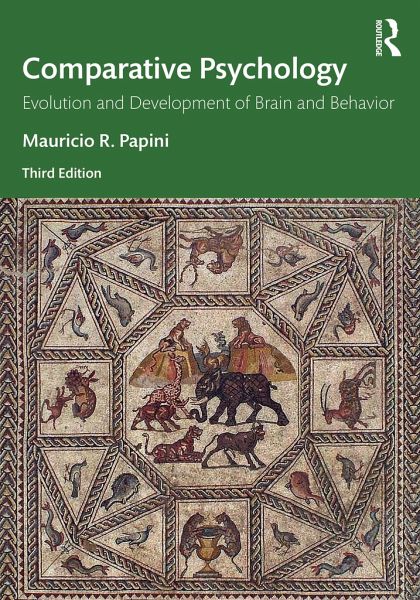
Comparative Psychology
Evolution and Development of Brain and Behavior, 3rd Edition
Versandkostenfrei!
Versandfertig in 6-10 Tagen
79,99 €
inkl. MwSt.
Weitere Ausgaben:

PAYBACK Punkte
40 °P sammeln!
This revised third edition provides an up to date, comprehensive overview of the field of comparative psychology, integrating both evolutionary and developmental studies of brain and behavior. This book provides a unique combination of areas normally covered independently to satisfy the requirements of comparative psychology courses.Papini ensures thorough coverage of topics like the fundamentals of neural function, the cognitive and associative capacities of animals, the development of the central nervous system and behavior, and the fossil record of animals including human ancestors. This te...
This revised third edition provides an up to date, comprehensive overview of the field of comparative psychology, integrating both evolutionary and developmental studies of brain and behavior. This book provides a unique combination of areas normally covered independently to satisfy the requirements of comparative psychology courses.
Papini ensures thorough coverage of topics like the fundamentals of neural function, the cognitive and associative capacities of animals, the development of the central nervous system and behavior, and the fossil record of animals including human ancestors. This text includes many examples drawn from the study of human behavior, highlighting general and basic principles that apply broadly to the animal kingdom. New topics introduced in this edition include genetics, epigenetics, neurobiological, and cognitive advances made in recent years into this evolutionary-developmental framework.
An essential textbook for upper level undergraduate and graduate courses in comparative psychology, animal behavior, and evolutionary psychology, developmental psychology, neuroscience and behavioral biology.
Papini ensures thorough coverage of topics like the fundamentals of neural function, the cognitive and associative capacities of animals, the development of the central nervous system and behavior, and the fossil record of animals including human ancestors. This text includes many examples drawn from the study of human behavior, highlighting general and basic principles that apply broadly to the animal kingdom. New topics introduced in this edition include genetics, epigenetics, neurobiological, and cognitive advances made in recent years into this evolutionary-developmental framework.
An essential textbook for upper level undergraduate and graduate courses in comparative psychology, animal behavior, and evolutionary psychology, developmental psychology, neuroscience and behavioral biology.














